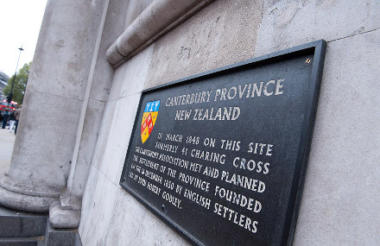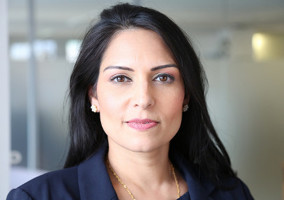The government’s decision to merge the Department for International Development (DFID) with the Foreign and Commonwealth Office (FCO) is “baffling and deeply damaging”, aid charities have warned.
The prime minister announced this afternoon that DFID and the FCO would merge, to create a “super department” named the Foreign Commonwealth and Development Office. The government has long held ambitions to merge the two, despite warnings from global development organisations that this would dilute the effectiveness of aid spending overseas.
Boris Johnson did not respond to questions in the House of Commons about whether any charities had been consulted by the government ahead of its decision.
Jeopardising the coronavirus response
Stephanie Draper, chief executive of the aid umbrella body Bond, said: “Today’s announcement from the government couldn’t come at a worse time.
“We are facing the biggest global pandemic in our lifetime, and we need a globally respected, independent DFID that has the relevant expertise to ensure Covid-19 is tackled worldwide, as well as a secretary of state for international development able to champion the needs of the world's poorest people in our global response.”
Draper added that the merger was taking place “without any process or consultation, and against the recommendations of both independent aid scrutiny bodies as well as the UK’s development and humanitarian sector”.
‘Scarcely believable’
Kevin Watkins, chief executive of Save the Children UK, said: "During the biggest humanitarian crisis in a century, when the Covid-19 pandemic is reversing hard won gains in child and maternal health, education and poverty, this is a baffling and deeply damaging move.
“It will weaken the UK’s ability to provide for the world’s poorest children at a time when they need the UK’s support and solidarity.
"DFID's independence has ensured that its aid spending is focused on fighting poverty and inequality, while aid administered by the Foreign Office has been widely criticised as less effective, less transparent and less value for money.
"There is now a real danger that narrow views of national self-interest will trump the explicitly humanitarian concerns at the heart of DFID’s remit.”
Oxfam GB: Merger puts politics above poverty
Danny Sriskandarajah, chief executive of Oxfam GB, said: “It is scarcely believable that at a time when decades of progress are under threat from Covid-19, the prime minister has decided to scrap DFID, a world leader in the fight against poverty. With half a billion people at risk of being pushed into poverty, the UK should be stepping up to protect lives but is instead choosing to step back.
“This decision puts politics above the needs of the poorest people and will mean more people around the world will die unnecessarily from hunger and disease. The Foreign Office may be excellent at diplomacy but it has a patchy record of aid delivery and is not as transparent as DFID.”
Uncertainty
Some development experts said that the proposals could create further instability for charities and other organisations currently working on aid projects.
Even before today’s announcement, senior MPs had been warning that charities face uncertainty about future funding. Last week Sarah Champion, chair of the International Development Committee, told the House of Commons that “all but 200 future DFID programmes are paused” with no sign of when they would restart.
One former senior civil servant told Civil Society News that it may “take months for any clarity to emerge, and in the meantime lots of good work will stall or stop” on development programmes, as government officials seek decisions on how to proceed.
Related articles











